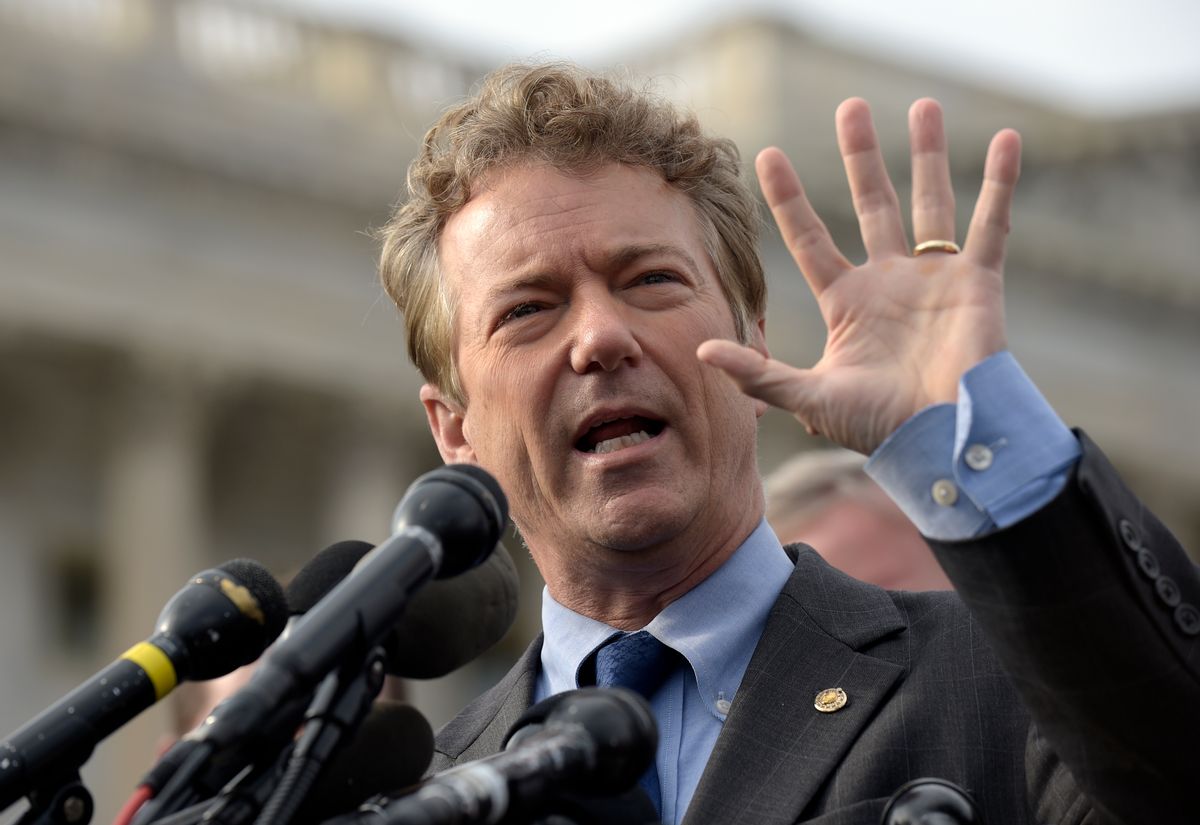Congressional Republican leaders publicly remain confident that the American Health Care Act, the "repeal and replace" bill that would make significant changes to Obamacare, will make its way through both the House and Senate. The odds of that happening are looking grimmer, however, as Senate Majority Leader Mitch McConnell and House Speaker Paul Ryan find themselves caught between the demands of their far-right members and their more centrist counterparts.
While many observers on the center and left have criticized the GOP health care measure for cutting back on insurance subsidies and rescinding the expansion of Medicaid made by Obamacare — the Congressional Budget Office has estimated that as many as 24 million people would lose their insurance over the next decade — small-government enthusiasts on the far right view the bill as too generous and wasteful.
Sen. Rand Paul of Kentucky has been leading the charge against the bill in his chamber as he has pulled several political stunts where he attempted to read a House copy of the leadership's bill. He's also attacked the measure — which would be President Donald Trump's first major legislative achievement if it passes— as "Obamacare Lite."
Paul and his minimal-government allies have also blasted the GOP proposal as being overly generous in providing refundable tax credits to Americans who are not eligible for Medicaid pricing.
“We never ran on making the entitlement subsidies permanent. We never ran on an individual mandate or keeping the taxes or keeping the Medicaid expansion,” Paul said Sunday on ABC’s “This Week.”
“We didn’t run on that, and so they’re really flat-out false in telling us, ‘Oh, you guys ran on this plan.’ None of us ran on this plan. We ran on repealing Obamacare because it doesn’t work,” he added.
President Donald Trump and Ryan have been meeting with congressional Republicans in the hopes of bringing them on board but as of yet, the votes simply are not there for the current bill.
Rep. Mark Meadows, R-N.C., leader of a group of far-right House Republicans calling themselves the Freedom Caucus, has indicated in several interviews that currently about 40 GOP members plan to vote against the bill in its present form. Besides complaining about costs, Meadows and his allies are also seeking to write mandatory work requirements for able-bodied Medicaid recipients into the bill. Currently, the bill allows states to decide on such stipulations.
Meadows and Sens. Mike Lee, R-Utah, and Ted Cruz, R-Texas, met with Trump over the weekend at his Mar-a-Lago estate in Florida to try to develop some compromise that would ensure enough votes for the GOP health care bill.
On Sunday, Ryan claimed he felt "very good" about the prospects for the House to pass the bill. McConnell and his Senate leadership colleagues have said they plan to bring up an identical measure to whatever passes the lower chamber and then hammer out compromises in a conference committee.
The Trump-Ryan health care bill faces a different series of problems in the Senate, where moderates have more power. Sen. Susan Collins of Maine is one of several Republicans who have expressed unease about the possibility of removing health insurance for 24 million people. It is unclear to what degree those concerns could be reconciled with the far right's desire to cut spending even more.
Should Congress fail to pass the bill, it might actually be a good outcome for the GOP in political terms. Instead of Republicans having to own their unpopular version of health care reform, they could instead move in piecemeal fashion to repeal some of the Affordable Care Act's more unpopular measures, such as the requirement to purchase insurance and a few of the tax increases, and then claim victory. They could potentially find some Democratic allies in the quest to implement some newer policies such as creating tort limitations on doctors and allowing insurance companies to sell products across state lines.
Going that route might not appease the ideologues who want to repeal the Affordable Care Act root and branch, but it may be more politically desirable for the GOP leadership. Even Fox News polling has reported that just 34 percent of Americans favor the Republican health care measure.
Update 2:00pm ET. Two high-powered conservative lobby groups, the Club for Growth and Heritage Action for America are publicly urging members of Congress to vote against the GOP bill.

Shares